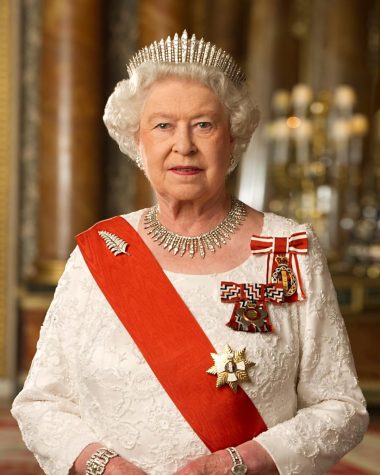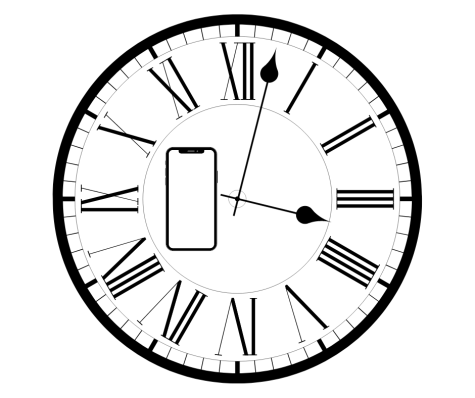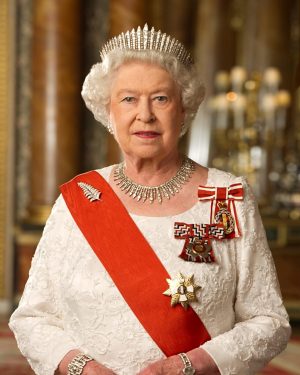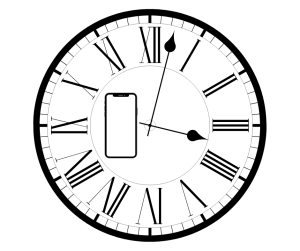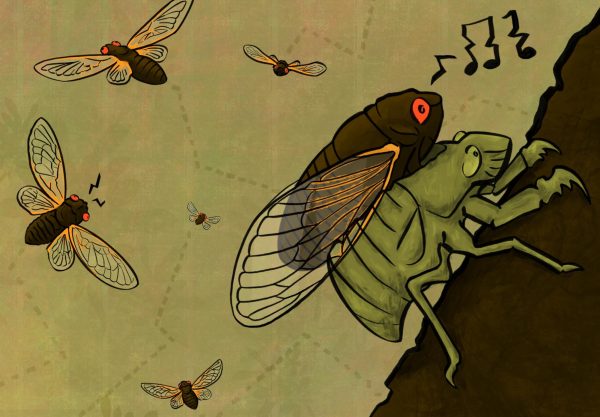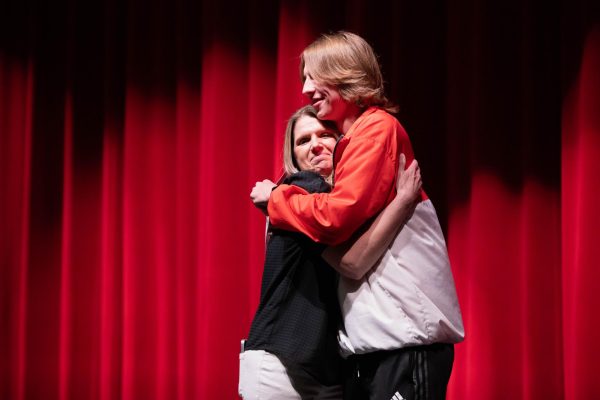What’s Next for England
Queen Elizabeth II’s passing leads to many changes in England and around the world
September 19, 2022
Queen Elizabeth II has been the Queen of England for the last seven decades. Last Thursday however the queen sadly passed. Her passing took the world by surprise, and will definitely change a lot of things not only in England but around the world.
At Liberty alone her death caused quite a stir. Mr. Barker’s government class was just walking in when the news broke out.
“So there were some questions right away. The kids had some questions like ‘what does the queen even do,’ ‘what does the king do’, and so it was kind of cool. Not cool as someone’s dead, but cool that kids were interested in government,” Barker shared.
Mr. Walterbach also explained how the queen’s passing may change some things for his Advanced History class.
“We do an English civil war unit. So it starts with earlier English history and it kind of goes on to the royal family and everything. Now I might have to change around some of my notes since I have stuff about Queen Elizabeth in there, who comes next, Harry and Meghan leaving, and stuff about the royal family. So I might have to change around some stuff when we get to that unit,” Walterbach said.

Eldest son of Queen Elizabeth, and former Prince of Wales is now officially King Charles III of the United Kingdom. He is currently 73 years old making him the oldest monarch to succeed the British throne. He was born on Nov. 6, 1948 to Queen Elizabeth II, who at the time was heir apparent to her father King George VI, and Prince Philip, Duke of Edinburgh. Although he was 3 when his mother became queen, technically he wasn’t named as heir apparent to the throne until he became Prince of Wales at the age of 9. Breaking with tradition, Queen Elizabeth II and Prince Philip decided to send Prince Charles to school. Prince Charles was the first heir not educated within the confines of the palace with a tutor. He studied history at Trinity College, Cambridge University, where he became the first British royal to graduate with a degree in 1970. Before enlisting in the Royal Navy, he underwent seven years of training to become a pilot for the Royal Air Force. In 1976, he retired from the service while serving as the HMS Bronington commander. He was married to Lady Diana Spencer in 1984. He had Prince William and Prince Harry with her. They later divorced and he remarried in 2004 to Camilla Parker Bowles who is now Queen Consort. After Queen Elizabeth II’s death Charles immediately became king with his reign started on Sept. 8.
The queen’s eldest son who was formerly Prince of Wales was officially proclaimed king last Saturday during a ceremony at St. James’s Palace. Charles III was born in 1948 making him 73 today and the oldest monarch to succeed the British throne. Now that Charles is king his previous title of Prince of Wales has been passed down to his eldest son Prince William, who is now the heir apparent to the throne.
Queen Elizabeth II was a prominent figure across the world and has a very big significance in history. Mr. D’Antonio explained her significance stating, “Well, she was the longest serving British Monarch which is significant in its own right but even though she doesn’t have directly any true political power she still did have sway over the former colonies of the British Empire. So most of these former colonies are part of what is known as the British Commonwealth, and she played a significant role in leading that, and the decolonization effort in the post WWII world. I especially know she was very prominent in Ghana. So she was definitely symbolic in that regard, and she was widely regarded as a pretty good monarch. People liked her even outside of the country, even in the United States we talked about her all of the time so that shows her importance culturally,” D’Antonio said.
Unlike Queen Elizabeth II, King Charles III wasn’t as prominent or favorable. Mr. Barker gave his insight about this. “Charles is not really universally loved. He used to be married to Princess Diana, she was for the common people, and the people adored her. He was sort of cheating on her, then they got divorced, and she died in an accident. So somehow the public opinion turned against him. I guess I understand why, but it did. So he’s not the most liked person ever. For British citizens, she was loved. There was no universal loving around the world, but within Britain at least she was there so long that everybody got used to her being there and liked her,” Barker said.
With the queen’s passing there will be some changes that occur in Britain before and after the queen’s funeral which is set to occur on Sept. 19. Senior Elaine Thimyan described some of the changes that are occurring in England as of now. “King Charles’s wife, Camilla will now be Queen Consort. Now William and Kate are the Prince and Princess of Wales, because all of the titles that Charles held went down to William and Kate. I believe Harry and Meghan got their titles back since the queen died. The 1o days of mourning should be over on Sunday, businesses are pretty much closed, you’re supposed to wear black if you are on screen talking about the queen. Charles’s coronation, I think, takes place anywhere from three months to a year after the queen’s death,” Thimyan explained.
Amongst these changes is also the changing of the national anthem from “god save the queen ” to “god save the king.” As well as the changing of England’s, Australia’s, Canada’s, and Belizean currency to now face King Charles III instead of Queen Elizabeth II. Currency featuring the queen will still be valid. British passports will also go through a change. Currently on the opening pages of the passports has a text which references the queen saying “Her Majesty” and such. Now the passport’s text must be changed to “His Majesty,” changing all of the mentions of her to his. Current British passports are still valid; the changed passports will be given for when current passports have to be renewed. The queen is also mentioned on Canadian, Australian, and other commonwealth countries passports which will also go through a change. There are 14 countries a part of the British Commonwealth that still recognize the British monarch in some respects. Now that the queen is dead, there’s also a chance that some Commonwealth nations may succeed from the Commonwealth. Countries like Canada, Jamaica and Australia for example.
Now other than those changes, people worry there will be changes in the monarchy in regards to government. However, Mr. Tutterrow clarifies this by saying, “So, it’s not like the old monarchs where they had all of the power and all of that. Now in the UK at least that monarchy is balanced with democracy and the parliament,” Tutterrow explains. Mr. D’Antonio also gives his insight on this saying, “I don’t think too much is going to change from an average citizen’s day-to-day life, the monarchy is very symbolic. It doesn’t have any actual political power anymore. That power is now in the hands of parliament. So really the monarchy serves as a ceremonial function, they’re a figurehead for England,” D’Antonio said.
With all of these things in mind one thing for sure is that an era has ended with the queen’s passing. These new changes that have come forth because of this will have an impact in the years to come. As for the rest of the world we will have to wait and see what King Charles III’s reign has to entail.

